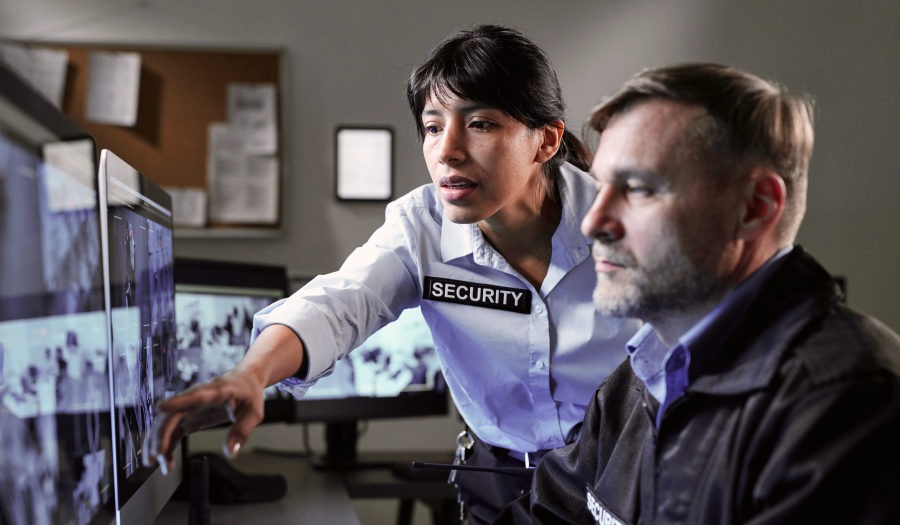Seven Steps to Setting up a Successful Virtual Event

Looking for ways to ensure that your virtual event is a success? Whether you are converting a physical event into a virtual one or starting a new event in the virtual space, this article outlines the seven basic steps you could take to create an event that engages and adds value for your attendees.
1. Set up a taskforce within your organization
Depending on the size and scope of your event, select a taskforce of people who can focus on specific areas of the event in order to bring the event to life. The taskforce is especially important when working with tight deadlines as it allows you to tackle a number of tasks simultaneously by delegating them to individual taskforce members who can take responsibility for them and make the necessary decisions without taking up too much time. Provide your task force with a timeframe and milestones to keep things on track.
2. Formulate an exciting and engaging program for the event
Select content that is relevant and of interest to your target audience. Create a program that engages and encourages interaction. If converting a physical event into a virtual one, decide how your program will need to be adjusted to suit the virtual setting. For example, virtual events will require shorter session times and shorter Q&As as attendees may find it difficult to concentrate for long periods online due to screen fatigue. On the plus side, the virtual environment allows you to run more concurrent sessions, and recordings of these sessions can be made available after the eventThis means you can widen your audience reach by offering sessions to different interest groups at the same time. Another great feature of virtual events is that you are able to offer different formats of sessions, including presentations with live Q&As, live polls and panel sessions to help keep your audience engaged.
3. Choose a suitable virtual and hybrid events platform on which to host your event
Selecting the right virtual event platform, such as OnAIR by EventsAir, is crucial to ensuring that your virtual event is a success. Take a look at your program and the types of sessions you would like to offer and search for a platform that will meet your requirements. If unsure, talk to the providers about what they can do to accommodate to your needs. As a minimum, the software should offer users the opportunity to engage a secure, single, user-friendly interface. Consider whether the platform includes features such as Meeting Hubs, Exhibition Halls, Gamification, and ePoster presentations, which add depth to your event and greatly improve the experience for attendees.
Want to hear about OnAIR in action? Find out how MCI Group took a conference with 850+ attendees and 126 sessions online with EventsAir.
4. Use your program to engage sponsors
Getting the right sponsors onboard for your virtual event is vital. Particularly with virtual events, it is a good idea to engage sponsors that are able to contribute to the technical aspects of the event. Talk to production companies, speakers’ bureaus, AV and studio providers, in addition to your regular sponsors to ensure you get the technical expertise you need to make your event run smoothly.
5. Set your Go-Live Team in motion
It takes a team to create a live event and the same goes from a virtual event – especially if you want it to come off as more than just another webinar. That’s why getting your Go-Live team up to speed before the event is so important to ensure success. This team should comprise representatives from all stakeholders including the software team, AV team, studio team, and your organisation and its clients (if applicable). Applying good project management skills at this stage will keep things humming along and heading for success. Define individual roles and tasks clearly, set goals and deadlines early on and hold weekly regular meetings with the team to ensure things stay on track.
6. Testing and rehearsal – lots of it!
To make sure everything is working smoothly, and any unexpected kinks are worked out well in advance of the event, it’s vital to get testing as soon as possible and keep testing and rehearsing as much as possible in the lead up to the event. From at least two weeks out, your team should be testing the AV set-up, as well as the exhibitor portals for sponsors. Encourage your presenters to test and rehearse their sessions on the platform to ensure that they are familiar with how it works and feel comfortable using it.
7. Create GO-LIVE Day Support Hubs to coordinate efforts
With virtual events, it’s not uncommon to have different people from different parts of the world working together to produce the event. You may have an AV team in one part of the country, while your studio team is in another and your speakers may be spread across the globe. Coordinating these different groups effectively is crucial for the smooth running of your event. That’s why is it important to create support hubs where the team members can go to discuss unexpected challenges arising during the event and make fast efficient decisions on how to address them.
Following these seven steps will see you through to a successful and engaging virtual event that goes beyond a simple webinar to offer the full conference experience online
EventsAir has been at the forefront of Event Technology and Innovation for over 30 years, continually pushing the boundaries of what an event management platform can do. Built by event planners for event planners, EventsAir is a secure, scalable, cloud-based solution that can manage everything from in-person, virtual to hybrid conferences, meetings and events in a single online platform – anywhere, anytime and on any device. In use in over 50 countries by multi-national corporations, professional conference organizers, government departments and tertiary education institutions, EventsAir is also used in global congresses such as G20, APEC, CHOGM and ASEAN, as well as sporting events like The Olympic Games, World Rugby, Commonwealth Games and Pan Am Games. EventsAir is trusted by event professionals around the globe. For further information, visit www.eventsair.com



